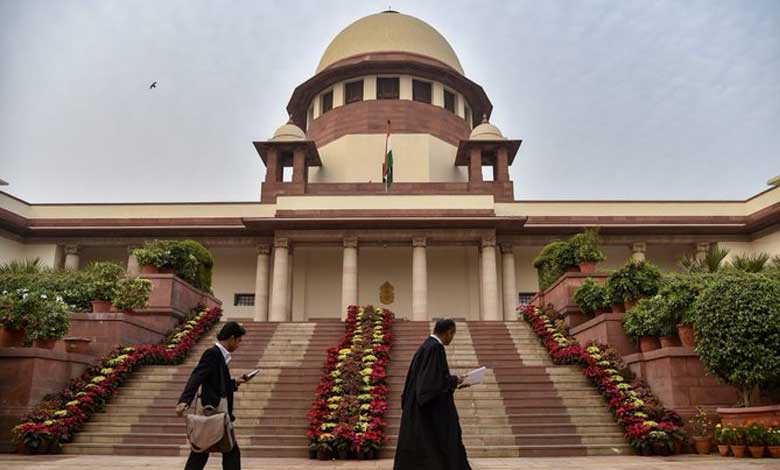Centre Yet to File Counter Affidavit on Places of Worship Act, SC to Hear Petitions on February 17
The Centre has failed to file its counter affidavit in response to petitions challenging the validity of the Places of Worship Act, 1991. Despite this, the Supreme Court is scheduled to hear the matter on February 17, 2025, in a bid to address the contentious law that prohibits lawsuits seeking to reclaim places of worship or alter their status as they stood on August 15, 1947.

New Delhi: The Centre has failed to file its counter affidavit in response to petitions challenging the validity of the Places of Worship Act, 1991. Despite this, the Supreme Court is scheduled to hear the matter on February 17, 2025, in a bid to address the contentious law that prohibits lawsuits seeking to reclaim places of worship or alter their status as they stood on August 15, 1947.
Table of Contents
Supreme Court to Hear Pleas Challenging Places of Worship Act
A bench of Chief Justice of India (CJI) Sanjiv Khanna, along with Justices Sanjay Kumar and K.V. Viswanathan, will resume hearing petitions on February 17. The petitions challenge the Places of Worship (Special Provisions) Act, 1991, which has been at the center of controversy due to its restrictions on legal actions to change the character of places of worship.
Shahi Masjid Eidgah Committee’s Plea to Close Centre’s Right to File Counter
On January 21, 2025, the Committee of Management of Mathura’s Shahi Masjid Eidgah filed an application urging the court to close the Union government’s right to file its counter affidavit. The application argued that the government had failed to submit its reply for over three years, despite the Supreme Court’s earlier directive to file a common counter affidavit within four weeks.
The Shahi Masjid Eidgah committee’s application contended that the Centre’s delay in filing the counter affidavit was a deliberate attempt to obstruct the hearing and delay proceedings. The petitioners argued that the Centre’s response would significantly impact the submissions of those challenging the Places of Worship Act.
History of Legal Challenges to the Places of Worship Act
In March 2021, the Supreme Court had sought the Centre’s response to a plea filed by advocate Ashwini Upadhyay, challenging the validity of specific provisions of the Places of Worship Act. The plea argued that the law violates the fundamental rights of Hindus, Jains, Buddhists, and Sikhs by preventing them from restoring their places of worship and pilgrimages destroyed during invasions.
The petition also contended that the 1991 Act was enacted under the guise of public order, which is a State subject, and argued that the law unfairly discriminates between the birthplaces of Lord Rama and Lord Krishna, both of whom are equally worshipped.
Also Read: U.S. Deportation Flights Trigger Major Protests: 119 Indians Land in Amritsar Amid Tensions
Interim Order and Centre’s Response
On December 12, 2024, the Supreme Court, under the leadership of CJI Sanjiv Khanna, issued an interim order. The order prohibited the registration of any new suits under the Places of Worship Act and stated that no final or effective orders would be passed in pending cases until further directions were issued.

The Centre was directed to file its response to the petitions challenging the law, but it has yet to do so. As the case is set to be heard on February 17, all eyes will be on the government’s stance on the Places of Worship Act and its potential implications for future legal challenges.
The outcome of this hearing could have significant consequences for the interpretation and future of the Places of Worship Act, 1991, a law that has long been a subject of intense debate and scrutiny.
